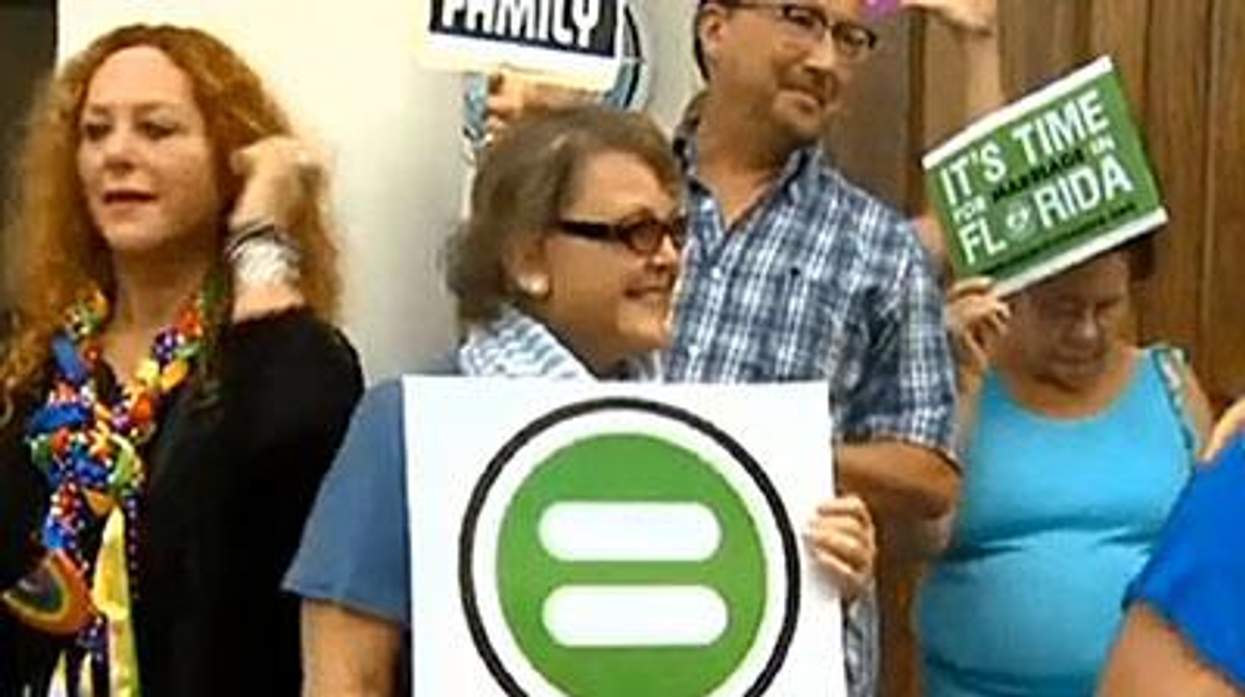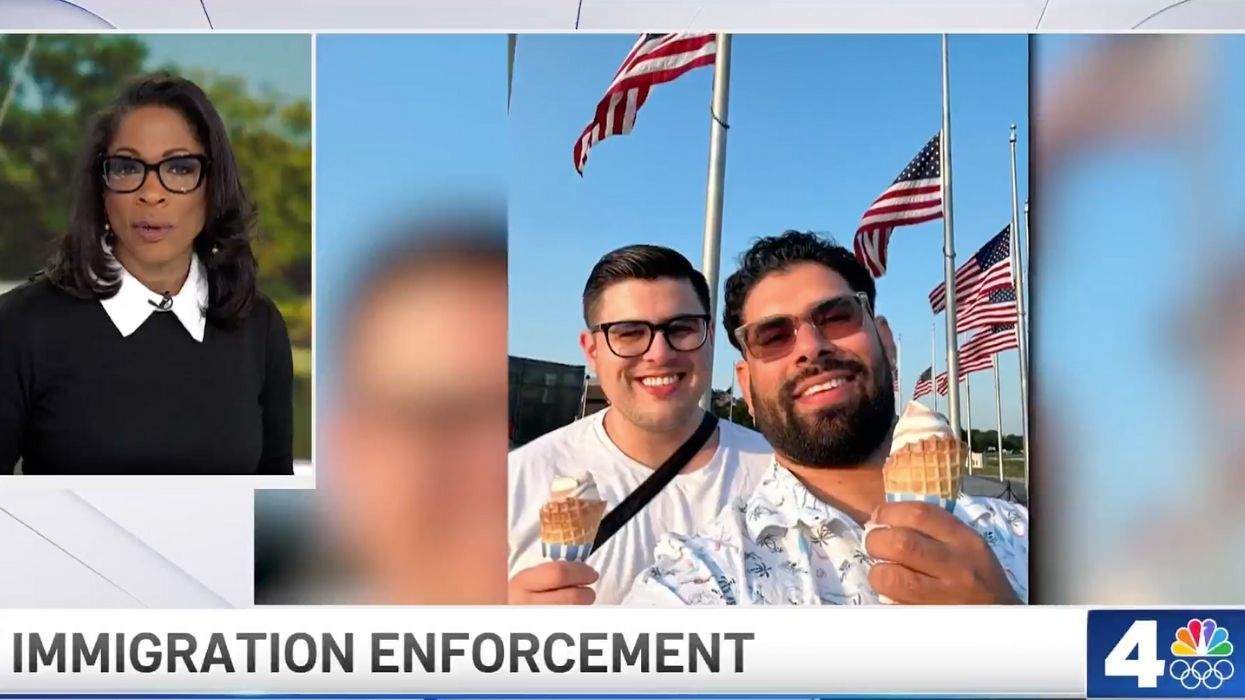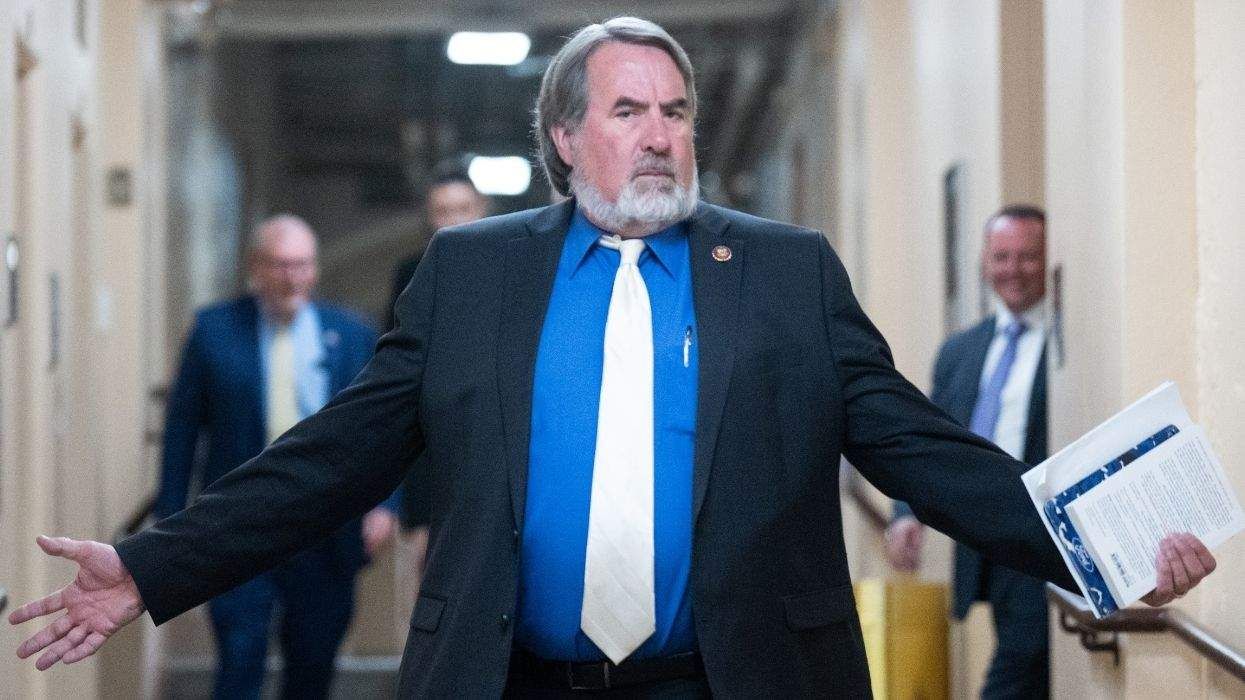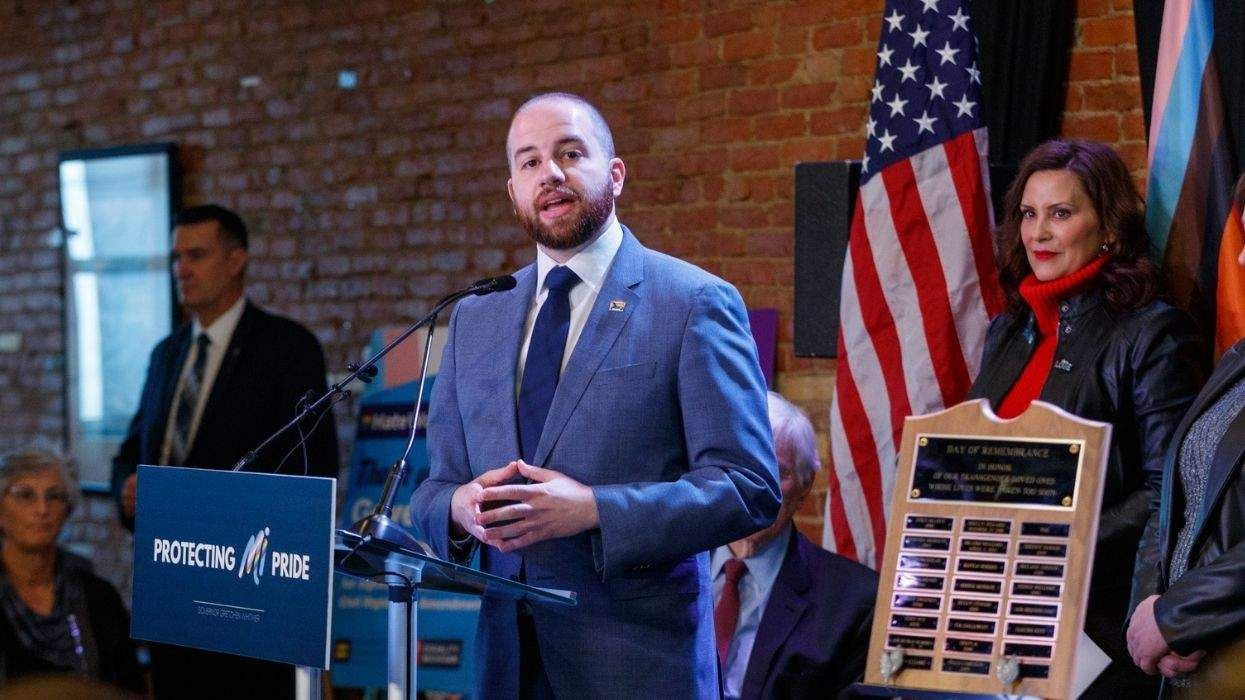U.S. District Judge Robert L. Hinkle Thursday issued an emphatic ruling that finds Florida's marriage ban to be unconstitutional. As with rulings in other states, the decision is laden with rhetorical flourishes and an unambiguous rebuke of antigay state officials. We've collected some of the most eloquent, enthusiastic defenses of marriage equality from Hinkle's ruling below.
Hinkle's ruling applies to two consolidated lawsuits and finds that the ban violates the Due Process and Equal Protection Clauses of the U.S. Constitution. Three state judges have reached identical conclusions in other cases in Florida.
Crucially, Hinkle identifies marriage as a fundamental right. His decision cites Zablocki v. Redhail, a case that overturned a ban on marriage for parents owing child support, and Turner v. Safely, which overturned restrictions on marriage for inmates.
He also relies heavily on last year's Supreme Court decision in Windsor v. U.S., which invalidated a key section of of the so-called Defense of Marriage Act (emphasis added):
In Windsor, the Court said -- three times -- that a state's interest "in defining and regulating marital relations" is "subject to constitutional guarantees." ... In short, it is settled that a state's marriage provisions must comply with the Fourteenth Amendment and may be struck down when they do not. ...
So the first step in analyzing the merits in these cases, as both sides agree, is determining whether the right asserted by the plaintiffs is a fundamental right as that term is used in due-process and equal-protection jurisprudence. Almost every court that has addressed the issue since the Supreme Court's 2013 decision in Windsor has said the answer is yes. That view is correct. The right asserted by the plaintiffs is the right to marry. The Supreme Court has repeatedly recognized that this is a fundamental right.
Hinkle reserves particularly strong disapproval for the attorneys representing Florida governor Rick Scott. He examines the defendants' justifications for the ban, which include state preference for heterosexual procreation, and finds them so lacking in logic as to constitute "mendacity" -- or in other words, dishonesty:
A variety of justifications for banning same-sex marriages have been proffered by these defendants and in the many other cases that have plowed this ground since Windsor. The proffered justifications have all been uniformly found insufficient. ... Indeed, defending the ban on same-sex marriage on the ground that the capacity to procreate is the essence of marriage is the kind of position that, in another context, might support a finding of pretext. It is the kind of argument that, in another context, might be "accompanied by a suspicion of mendacity." ... The undeniable truth is that the Florida ban on same-sex marriage stems entirely, or almost entirely, from moral disapproval of the practice.
The ruling compares Florida's ban on marriage to the racist antimiscegenation laws of the last century. Hinkle paraphrases Dr. Martin Luther King Jr. and offers a confident assurance that marriage equality poses no threat:
When observers look back 50 years from now, the arguments supporting Florida's ban on same-sex marriage, though just as sincerely held, will again seem an obvious pretext for discrimination. Observers who are not now of age will wonder just how those views could have been held. ...
To paraphrase a civil-rights leader from the age when interracial marriage was first struck down, the arc of history is long, but it bends toward justice. ...
The institution of marriage survived when bans on interracial marriage were struck down, and the institution will survive when bans on same-sex marriage are struck down. Liberty, tolerance, and respect are not zero-sum concepts. Those who enter opposite-sex marriages are harmed not at all when others, including these plaintiffs, are given the liberty to choose their own life partners and are shown the respect that comes with formal marriage.
But perhaps the most stirring quote in the ruling comes near the end, when Hinkle cites U.S. Supreme Court Justice Antonin Scalia. In 2003, Scalia wrote a bitter dissent in Lawrence v. Texas (which struck down state bans on consensual same-sex sexual activity), claiming that states must be free to write laws that express moral disapproval. At the time, Scalia's concern was that overturning laws on certain private sexual practices would require the legalization of same-sex marriage.
In his ruling this week, Hinkle cites Scalia's dissent and comes to the exact same conclusion:
In his Lawrence dissent, Justice Scalia made precisely the point set out above -- that a ban on same-sex marriage must stand or fall on the proposition that the state can enforce moral disapproval of the practice without violating the Fourteenth Amendment. Justice Scalia put it this way: "State laws against ... same-sex marriage ... are likewise sustainable only in light of Bowers' validation of laws based on moral choices."
Governor Scott and Attorney General Pam Bondi are likely to appeal the decision to the 11th Circuit Court of Appeals. Or they may attempt to skip that appeal and directly petition the U.S. Supreme Court. Should the state officials present the case to the U.S. Supreme Court, Justice Scalia is likely to take great interest in this application of his Lawrence dissent.















Charlie Kirk DID say stoning gay people was the 'perfect law' — and these other heinous quotes
These are some of his worst comments about LGBTQ+ people made by Charlie Kirk.